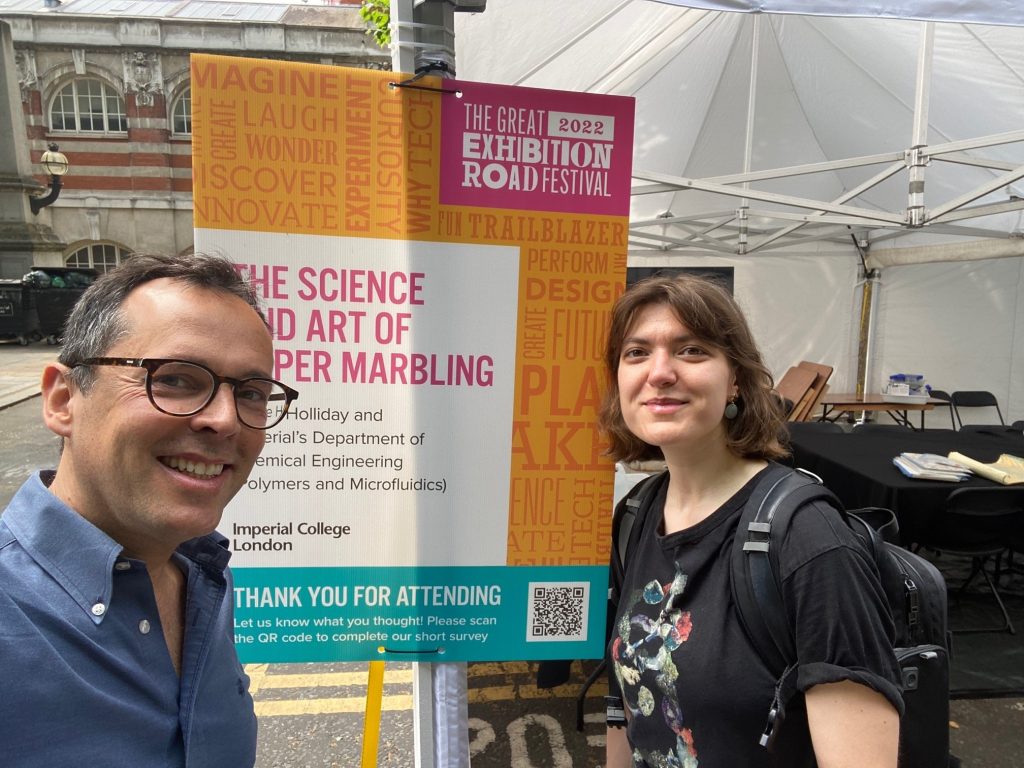It’s time to meet another alumna of the IMSE Molecular Science and Engineering MRes. This week, we speak to Jessica Govey-Scotland, who studied at IMSE in 2020-2021.
It’s time to meet another alumna of the IMSE Molecular Science and Engineering MRes. This week, we speak to Jessica Govey-Scotland, who studied at IMSE in 2020-2021.
Just a short entry this week to point you towards a blog entry on the Imperial College London student blog. Fei Gao, who studied with IMSE on the MRes in Molecular Engineering in 2020-21, has written about her experience.
It has been a time of endings and beginnings. It’s that time of year when we say goodbye to summer and hello to shorter days, falling leaves and cooler temperatures. It’s also that time of year when we say goodbye to one cohort of MRes students and hello to the new year’s cohort.
How can we prevent damage to old objects when the environment around them is changing? Imperial College London and the Victoria and Albert Museum are collaborating to solve new questions in the conservation of materials.
On 7 September, the Science and Engineering Research for Cultural Heritage network organised a collaborative workshop with the conservation team at the V&A. The goal was to brainstorm areas where Imperial scientists and engineers could collaborate with museum conservators and scientists, in order to solve problems in conserving cultural heritage objects.

Over the summer of 2022, we’re catching up with some of the people who came to study at IMSE on the Molecular Science and Engineering MRes. They are now going on to a wide variety of exiting jobs in the world. The IMSE masters course in molecular engineering has been running since 2017, so there are more than 30 MRes alumni. This week, we speak to Javiera Perez, who studied at IMSE in 2019-2020.
The new IMSE generation is making waves! One of the first graduates from the IMSE Molecular Science and Engineering MRes, Victor Riesgo Gonzalez, is now working on a PhD in energy materials at Cambridge, and he’s published his first paper as first author.
Part of my job as Translation and Research Manager is to support the production of new IMSE briefing papers. Topics vary as widely as IMSE’s research themes, which cover sustainability, innovation and health and wellbeing. One of the current papers in preparation is on chemical additives in plastics. This really combines all three themes! So I’ve been exploring how the UK currently does chemicals regulation. It’s complicated… To find out more, I attended a meeting of the UK Chemicals Stakeholder Forum last month.
It may sound like a cliché these days to hear people describe some new piece of technology as ‘next generation’. But here at IMSE, we’re working on the convergent science that underpins those kinds of technologies. And on our Master’s course, we’re training the people who will invent and develop these next generation technologies, and the manufacturing processes for them too. On 23rd June this year, we got to hear from our current cohort of 12 MRes students about progress on their research projects. It’s a great day for IMSE every year to see our students putting the IMSE approach into practice!
On 24th June, we had one of IMSE’s yearly Big Days: the annual lecture, supported by the gift of Dr Theo George Wilson. This year the speaker was Professor Sossina Haile of Northwestern University, who has pioneered the development of solid acid fuel cells.
Imperial College London is committed to sharing the wonder and excitement of the science that we do. So it is part of the Great Exhibition Road Festival every June, a two-day science and art party for all ages! In 2022, the theme was trailblazers. Imperial worked alongside some of the great museums and institutes in the Albertopolis to deliver talks, workshops, performances and activities. And of course IMSE was there as well!
